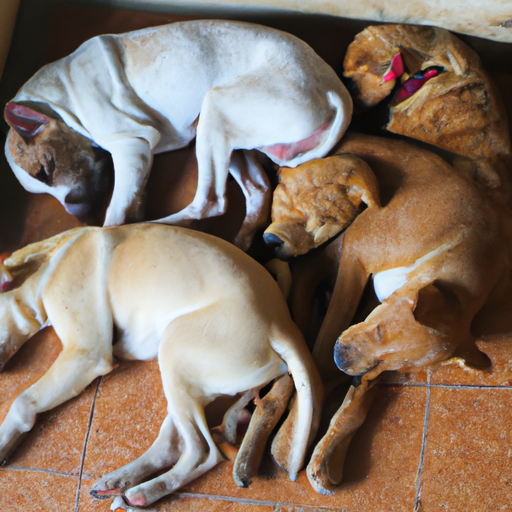Understanding the sleeping habits of dogs in a pack not only provides a fascinating look into their natural behaviors but also gives valuable insights into how you, as their caregiver, can make their sleeping environment comfortable and secure.
Understanding Dog Pack Behavior
In the wild, dogs are pack animals. They live, hunt, play, and sleep together. Their sleeping habits are naturally influenced by their instinctual behaviors.
- Safety in Numbers: Dogs in a pack sleep together for warmth and protection. The pack provides a sense of security against potential predators.
- Body Language: Dogs use body language even while sleeping. How they position themselves gives cues about their rank in the pack and their comfort level with other dogs.
- Sleeping Positions: The alpha dog usually sleeps in the center of the pack, while the lower-ranking dogs sleep on the periphery.
Sleep Cycles of Dogs in a Pack
Dogs have a different sleep cycle compared to humans. They spend more time in the REM stage, which is when dreaming occurs.
- Dogs sleep approximately 12 to 14 hours a day.
- Puppies and older dogs might sleep even more, up to 18 hours.
- Dogs in a pack might have synchronized sleep cycles.
Providing a Comfortable Sleeping Environment
As a caregiver, creating an environment that mimics a dog’s natural sleeping habits can help them feel secure and comfortable.
- Dog Beds: Provide a comfortable dog bed for each of your dogs. This gives them a sense of their own space.
| Dog Bed Material | Benefits |
|---|---|
| Memory Foam | Supports joints, good for older dogs |
| Polyester Fill | Soft and cozy, good for small breeds |
| Elevated Beds | Keeps dogs cool, good for hot climates |
- Sleeping Arrangement: Allow your dogs to choose their sleeping positions. This helps maintain a harmonious pack dynamic.
The Importance of Sleep for Dogs
Just like in humans, sleep is crucial for a dog’s health and well-being. It aids in growth, healing, and cognitive function.
- Growth: Especially in puppies, sleep is when most growth happens.
- Healing: Sleep allows the body to repair itself.
- Cognitive Function: Sleep helps in memory consolidation and learning.
FAQs
Q: Do all dogs in a pack sleep at the same time?
A: Not always. Some dogs might stay awake to guard the pack.
Q: Should I let my dogs sleep together?
A: If they’re comfortable, yes. But ensure each dog has their own bed.
Q: What if my dog doesn’t want to sleep with the pack?
A: Respect their choice. They might need their own space.
Q: How can I help my dog sleep better?
A: Provide a comfortable bed, regular exercise, and a quiet sleeping environment.
By understanding how dogs sleep in a pack, you can better cater to your dog’s needs and ensure they have a good night’s sleep. After all, a well-rested dog is a happy, healthy dog.



